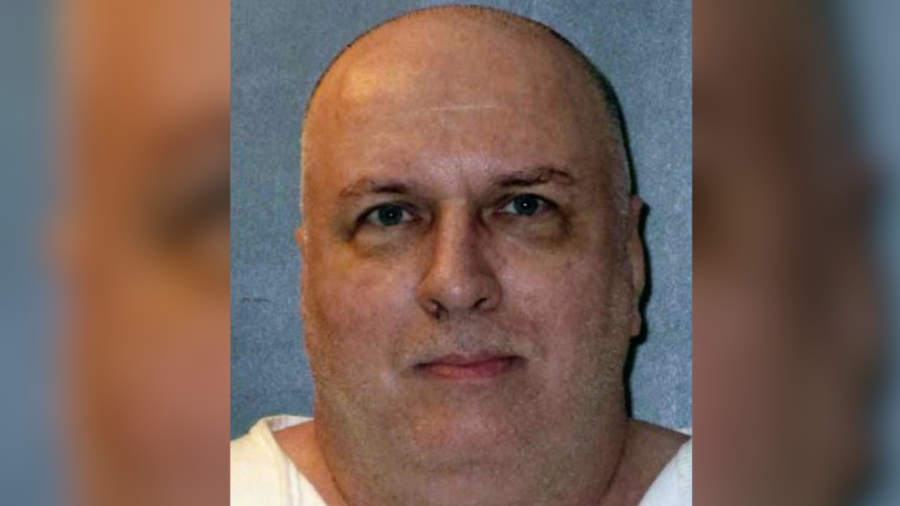A federal judge on Thursday stayed the execution of a “Texas 7” gang member who was convicted in the killing of a police officer because the state has refused to provide him with a Buddhist chaplain in the death chamber.
The U.S. Supreme Court initially blocked Patrick Murphy’s execution in March, saying his religious rights would be violated if no Buddhist chaplain was present.
Justice Brett Kavanaugh wrote in a concurring opinion that Texas can’t move forward with Murphy’s execution unless the state permits his Buddhist adviser or another Buddhist reverend of the state’s choosing to accompany him in the death chamber.
The state had employed only Christian and Muslim chaplains and prohibited non-prison employees inside the death chamber for security reasons. Following the Supreme Court’s ruling, the Texas Department of Criminal Justice in April banned all clergy in death chambers and rescheduled Murphy’s execution for Nov. 13.
But U.S. District Judge George C. Hanks stayed Murphy’s execution once again on Thursday, days before he was scheduled for lethal injection.
“Murphy’s deposition demonstrates valid concerns about the current TDCJ policy,” Hanks wrote in the ruling.
Murphy has said he felt “an underlying current of a little bit of pressure … to make a last-minute conversion to Christianity” despite his Buddhist beliefs, court records show.
Hanks proposed ending “denominational discrimination” by “ending all contact with all clergy at the same hour for all inmates or (by) allowing all inmates equal access to their chosen spiritual advisers before they enter the death chamber.”
A date will be set for new arguments in this case in federal court.
‘Long and Violent Criminal History’
Murphy was among the inmates who escaped from a South Texas prison in December 2000 and then committed numerous robberies, including the one in which they shot 29-year-old Irving police Officer Aubrey Hawkins 11 times, killing him.
Hawkins, who had been with the Irving police force about 14 months, had just finished Christmas Eve dinner with his family when he responded to the call about the robbery at a sporting goods store and was ambushed.
The escaped inmates were arrested a month later in Colorado, ending a six-week manhunt. One of them killed himself as officers closed in and the other six were convicted of killing Hawkins and sentenced to death. Murphy would have been the fifth to be executed. The sixth inmate, Randy Halprin, has not been given an execution date.
Murphy was convicted under Texas’ law of parties, which holds a person criminally responsible for the actions of another if they are engaged in a conspiracy.
Murphy’s attorneys had also asked the Texas Court of Criminal Appeals to stop his execution, arguing his death sentence is unconstitutional because he was only the lookout during the robbery, never firing at Hawkins because he had left the scene before the shooting began.
“It is unconscionable that Patrick Murphy may be executed for a murder he did not commit that resulted from a robbery in which he did not participate,” his attorneys, David Dow and Jeff Newberry, said in a statement.
Toby Shook, the lead prosecutor who handled Murphy’s case and those of the other five members, said Murphy actively participated in the robbery, monitoring a police scanner from a getaway vehicle and telling the other inmates when Hawkins was coming to the back of the store.
“He alerted them. That allowed them to set up their ambush,” said Shook, who is now a criminal defense attorney in Dallas.
Murphy was serving 50 years for a Dallas sexual assault but was only 15 months away from being released on mandatory parole when he took part in the prison escape.
Shook said Murphy has a very long and violent criminal history, including molesting his step-sister and pulling a gun on his father.
“They all were violent felons,” Shook said. “So, he fit in perfectly with the rest of the Texas 7. He actively participated in all their robberies and all their crimes when they were out on the run.”
AP reporters Juan A. Lozano and Michael Graczyk contributed to this report.


